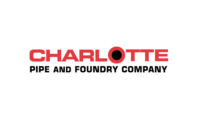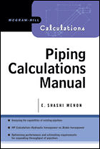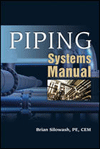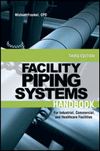The petitioners in this case are Allied Tube & Conduit, IPSCO Tubulars, Northwest Pipe Co., Sharon Tube Co., Western Tube & Conduit Corp. and Wheatland Tube Co., as well as the USW.
Chinese imports of circular standard and structural pipe have increased from 10,000 tons in 2002 to 690,000 tons in 2006, a 6,800% increase. Since then four U.S. plants (out of 35) have ceased production and over 500 employees have lost their jobs. The surge continued with a 21% rise in imports in the first quarter of 2007. Imports of standard pipe from China represent over 60% of total U.S. imports of such products.
Armand Lauzon, CEO of John Maneely Co. (parent company of petitioners Wheatland Tube and Sharon Tube), said, “For the past 15 months, we have been working hard to bring more consolidation to the pipe and tube industry in the United States and to further improve its worldwide competitiveness. Unfortunately, in May 2006, we were forced to close our second largest production facility located in Sharon, PA, with the loss of several hundred jobs because of the surge of unfairly traded imports from China. Unfair Chinese trade practices are severely hampering our efforts to achieve the desired rates of return necessary to attract capital and to maintain competitiveness in this critical U.S. industry.”
The unfair Chinese trade practices documented in the filing include sales at less than fair value and subsidies to the Chinese industry. The alleged margins of dumping range as high as 88%. The subsidies documented include policy loans, land use programs, tax subsidies, input material subsidies, grants and export tax subsidies. The petition also addresses an export subsidy nominally known as a value added tax (“VAT”) rebate program. The petition alleges that this rebate is discretionary and excessive. The Government of China uses this particular program to provide an advantage to Chinese exports in global markets.
The Chinese steel industry has been nurtured and encouraged by the Chinese government for decades. Even so, as recently as 1990, Chinese steel production was still less than that of the U.S., the European Union, or Japan. Today, Chinese steel production exceeds that of all three of those entities combined.
Rick Filetti, president of Allied Tube & Conduit, said, “Allied operates four of the most efficient pipe plants in the world geographically spread through the U.S. market in Philadelphia, Chicago, Phoenix and Pine Bluff, AR, to serve the entire U.S. market in a freight beneficial manner. However, absent an end to dumping and a reduction in imports from China, we will be forced to make reductions at our plants despite very strong demand for our products.
“It would be a tragedy for the United States if the most efficient and environmentally compliant plants in the world were shut down and the United States' nonresidential construction market became dependent on products imported from inefficient, environmentally noncompliant, high freight costs mills in China for this essential product to the U.S. economy. We are asking for the U.S. government to restore the level playing field and allow the rules of comparative advantage to hold sway.”
U.S. steel pipe producers reacted skeptically to recent accounts in the press regarding Chinese government announcements to adopt additional reforms in their country’s steel sector. “This industry believes now more than ever that the Chinese are truly targeting the American steel pipe, tube and fittings sector through their effort to exclude pipe, tube and fittings products from these new export restraint programs,” said Roger B. Schagrin, executive director and general counsel of the Committee on Pipe and Tube Imports (CPTI).
“The recent developments clearly show that the Chinese are trying to put a band-aid on the trade wounds inflicted by their industry through the establishment of these programs,” said Will Boggs, chair of the CPTI and vice president at Allied Tube and Conduit. He added, “We can only have so much antiseptic applied to the wound in this case and I fear that without any official U.S. government engagement, our industry and its workers will have to move ahead with an aggressive campaign to change these policies and fight this surge in imports, and as it is said, time heals all wounds, but we are running out of time.”
Under the antidumping and countervailing duty statutes, the International Trade Commission will make a preliminary injury determination by the end of July 2007; the Dept. of Commerce should issue preliminary determinations in the countervailing duty and antidumping duty cases in October and November of 2007.






